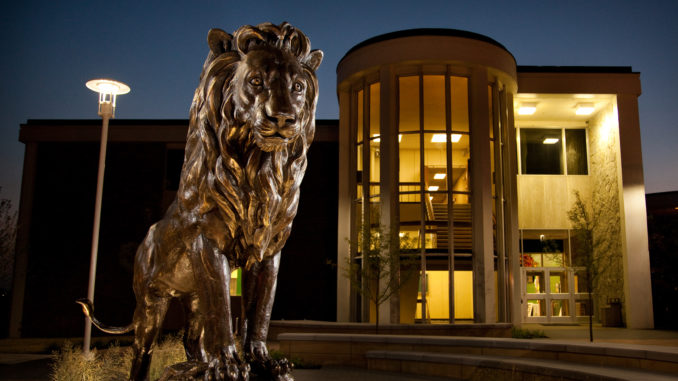
(Joplin, MO) – Missouri Southern State University’s (MSSU) Board of Governors approved the creation of a new Food Science and Nutrition program Friday, which will allow for students to pursue a Bachelor of Science degree in Food Science and Nutrition at the university.
Missouri Southern recently received a Title III grant from the U.S. Department of Education to support this new focus based on the growth of the food industry in the region and the university’s ability to offer the courses to obtain the degree.
The Board’s approval was unanimous.
“The new degree program will provide students with a comprehensive understanding of the intricate aspects of food science, nutrition, and human health,” said Andrea Cullers, chair of the Department of Kinesiology at MSSU. “Food Science and Nutrition is a high-opportunity field, reflecting the growing interest in nutrition, food safety, sustainability of the food system and evolving technologies in food processing.”
Cullers said employment in the Food Science and Nutrition field is projected to grow by 14 percent in Missouri by 2030, with a median annual wage of more than $65,000 for jobs in the industry. Nationally, job growth in the field increased by 13 percent between 2021 and 2022.
The degree program is especially needed in Missouri as well – the University of Missouri-Columbia is the only other university in the state to offer a Food Science degree, while the only universities regionally to offer the degree are land-grant institutions like Kansas State University and the University of Arkansas.
Missouri Southern’s program will encompass a multidisciplinary approach, drawing from various STEM fields such as biology, chemistry, physics, physiology, nutrition, microbiology, and biochemistry. It will include practical experiences through internships, providing students with hands-on learning opportunities crucial for successes in the industry, Cullers said. Students will have the opportunity to delve into the fundamental principles of food science, including food safety, processing, packaging, analysis, quality assurance, food policies and regulations.
Students who complete the degree will be able to apply critical thinking and analytical skills to identify problems in food and nutritional sciences, participating in the design and evaluation of solutions that advance the field. Cullers said the program will additionally feature smaller class sizes, a lower faculty-to-staff ratio and immersive learning opportunities while connecting students to local and regional food industries.
“This program ensures a tailored educational experience for students who are passionate about food science and nutrition,” Cullers said, “along with opportunities to enter the workforce with skills that will benefit the industry, our communities, and our state and region.”
The degree program will be offered beginning with the Fall 2024 semester pending approval by the Missouri Department of Higher Education and Workforce Development and the Higher Learning Commission.
“With the outstanding work already taking place on our campus related to health and life sciences, Missouri Southern is uniquely prepared to expand what we’re able to offer our current and future students through food science and nutrition,” said Lisa Toms, the University’s Provost and Vice President for Academic Affairs. “We’re excited to be able to offer a new Bachelor of Science degree, especially one that is crucial to the future of our state and nation.”
In other business Friday, the Board also voted to establish a simplified and transparent student academic fee structure, eliminating the concern of unexpected fees that can sometimes occur in student billing.
Beginning for the Fall 2024 semester, all MSSU undergraduate students will pay $30 per credit hour, labeled as the “Lion Fee,” to replace existing academic program and class fees, meaning students will know exactly how much their bill will be – and what their financial aid will cover – before classes begin. Previously student academic fees would vary depending on what courses students selected, affecting the overall costs students faced once the semester began and at times leading to unanticipated costs.
The university’s Board of Governors will maintain oversight of the new fee and consider any potential changes to it in future academic years. Friday’s decision came after University officials had several conversations with campus academic and student leaders during the past few months in an attempt to make the cost of education more simplified and transparent for students.
“Students really don’t like unexpected course fees that sometimes come after you sign up for a class,” said Maddox Studdard, the Board of Governors’ student representative. “When Dr. (MSSU President Dean) Van Galen met with student leaders about the new Lion Fee, what they liked most about it was it was transparent, and they would know how much their costs would be before they signed up for their classes.”
Key features of the new fee include:
- A simple, predictable, no-surprise bill each semester for students.
- A single per credit charge to all undergraduate students with the elimination of program and course fees.
- Generating appropriate resources to support unique academic excellence experiences for students.
- Board oversight of fees.
Money collected through the “Lion Fee” will be used for educational excellence — with oversight by the university’s three academic deans to determine strategic allocations to classroom and course needs, technology-enhanced student learning on campus, the creation of immersive learning spaces and care of facilities, scholarships, and other student-focused initiatives.
“We wanted to create a model that met the needs of our campus while simplifying the way our students viewed their bill,” MSSU President Dr. Dean Van Galen said. “Transparency was a key component. Across higher education there is a growing concern about fees that aren’t clear to students when they register for classes — especially as fees accumulate for many of the classes they choose. This process will make it much clearer for students.”
The new fee only pertains to academic and course fees. Missouri Southern does not charge parking, recreation center, health center, and athletic fees that are common at other higher education institutions and will continue to offer those opportunities and services for free with the new fee structure.
Reference:
University Relations & Marketing
Missouri Southern State University
417.625.9813








Be the first to comment